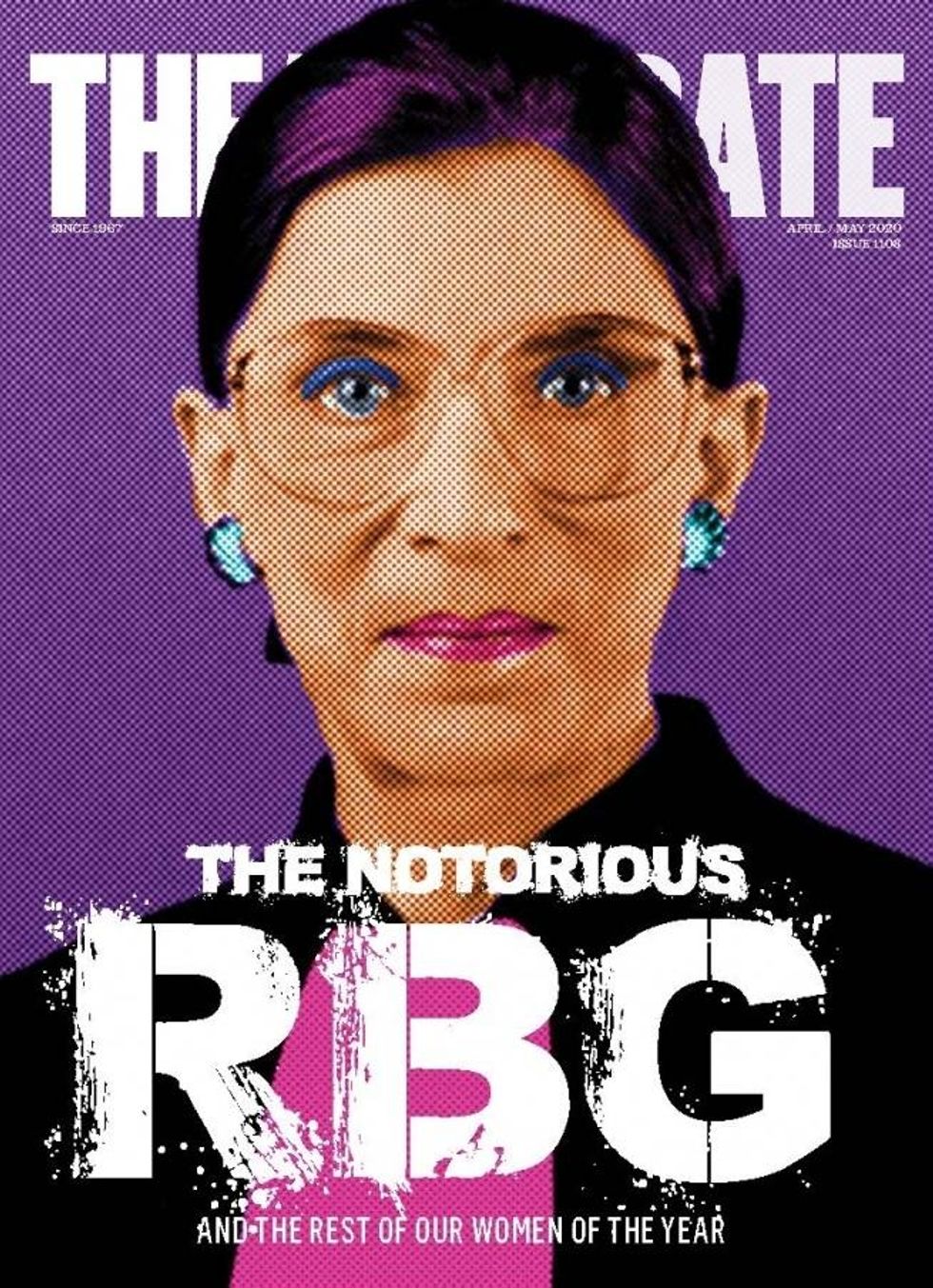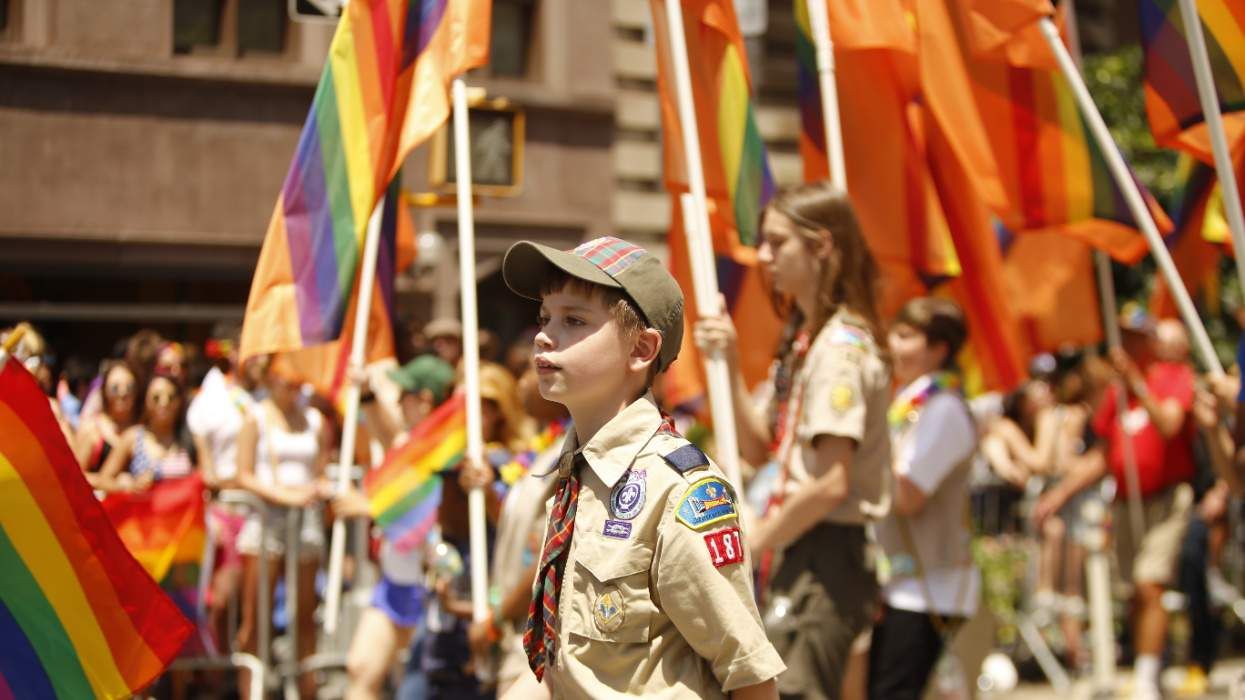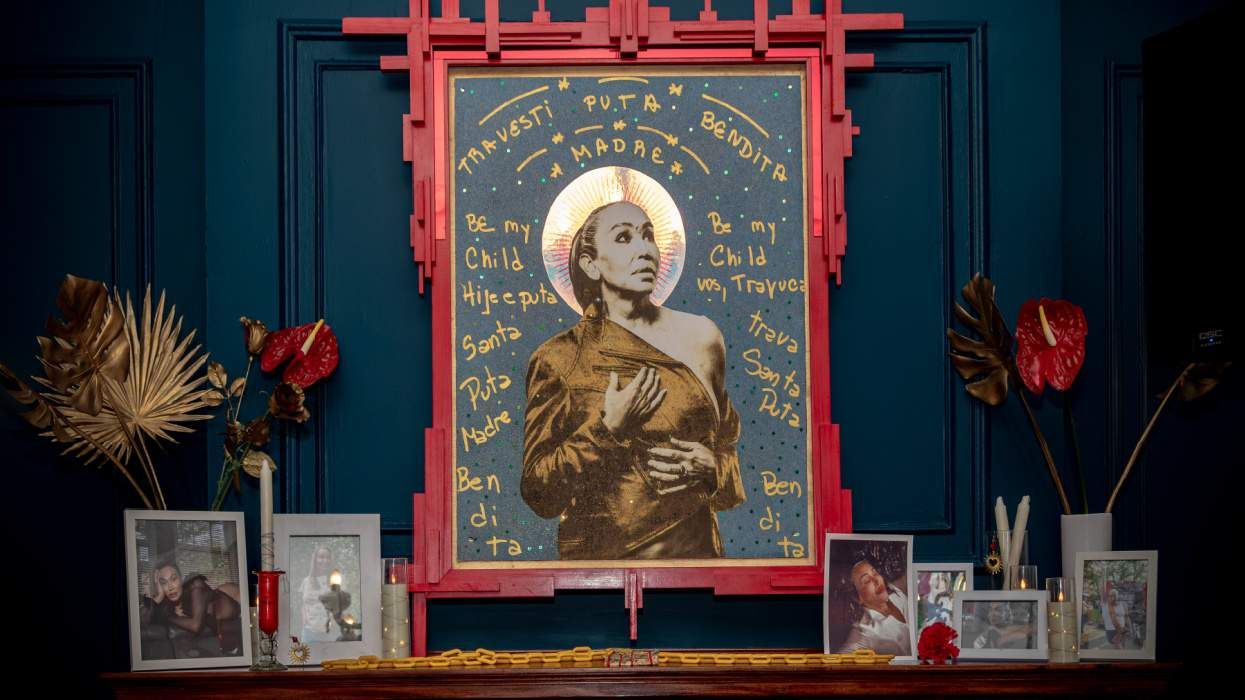Supreme Court Justice Ruth Bader Ginsburg is a woman of the year every year, but this year she joins a long line of other trailblazers for The Advocate's Women of the Year issue.
Ginsburg has a long history of fighting for the rights of women, LGBTQ people, people of color, and other marginalized groups.
As a lawyer, she was arguing against sex discrimination back in the 1970s, when what was then called Women's Liberation had far from universal support. One of her most significant early cases was Moritz v. Commissioner of Internal Revenue Service, which showed that gender equality benefited men as well as women. In the case, dramatized in the 2018 film On the Basis of Sex, Ginsburg successfully argued that a man shouldn't be denied a tax deduction for what he paid his mother's caregiver, when a woman in the same situation would receive the deduction.
Ginsburg, who graduated first in her class at Columbia Law School in 1959, taught law at Rutgers University, where she started a class on women and the law, and then Columbia before President Jimmy Carter appointed her to the U.S. Court of Appeals for the District of Columbia in 1980. Then President Bill Clinton appointed her to the Supreme Court in 1993, making her only the second woman to serve on the high court. Three years later, she joined the court's majority in its first pro-LGBTQ ruling, Romer v. Evans, which struck down a discriminatory state constitutional amendment in Colorado.
Ginsburg went on to be in the majority in other pro-equality rulings, and she dissented eloquently from the court's 2018 ruling in favor of a Colorado baker who refused to create a wedding cake for a same-sex couple because, according to the baker, it would violate his rights of freedom of speech and religion. While the majority found that Colorado officials, when they found baker Jack Phillips had run afoul of the state's antidiscrimination law, did not give his religious beliefs appropriate consideration, Ginsburg wrote, "What matters is that Phillips would not provide a good or service to a same-sex couple that he would provide to a heterosexual couple."
She further noted, "Phillips declined to make a cake he found offensive where the offensiveness of the product was determined solely by the identity of the customer requesting it."
That was in keeping with Ginsburg's record. In 2013, she became the first Supreme Court justice to officiate a same-sex couple's wedding. "I think it will be one more statement that people who love each other and want to live together should be able to enjoy the blessings and the strife in the marriage relationship," she told The Washington Post at the time. She has gone on to officiate weddings for other same-sex couples.
Ginsburg's admirers have rightly been worried about her health and her ability to remain on the court at least until a Democratic president is in office. Now 87, she has had several bouts with cancer, but she is nothing if not a survivor.
Early in March, she was asking tough questions as the court heard a case on a restrictive abortion law in Louisiana, just as she did when the justices heard LGBTQ rights cases last October (a ruling in those is expected in June).
The Notorious RBG remains a fierce advocate for equality, and long may she rule.
















